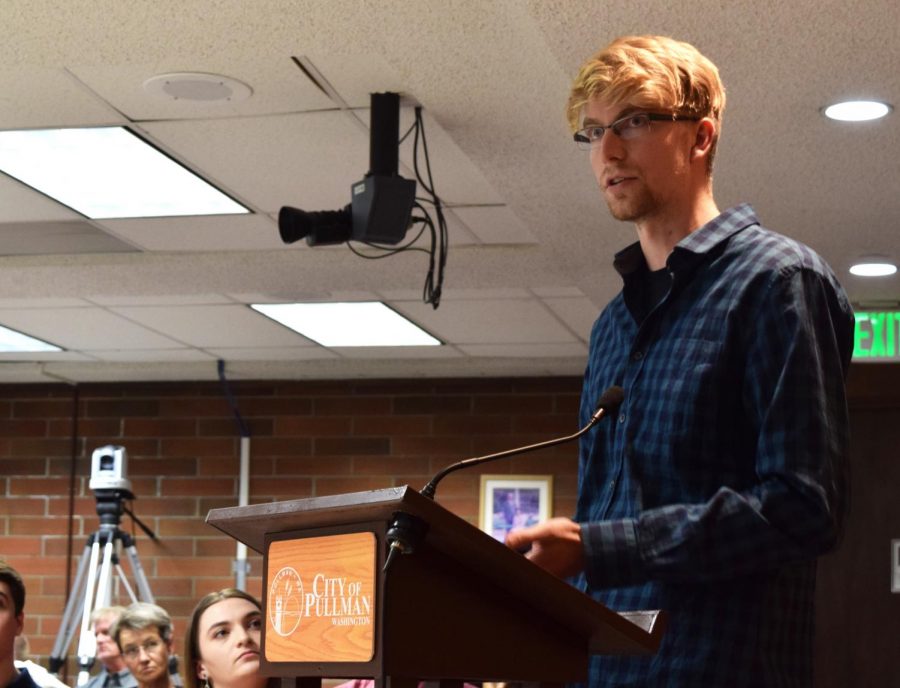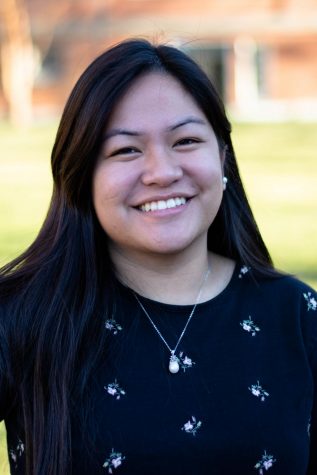ASWSU shares potential recycling changes
Curbside composting, melting machine, new labels to be considered
JOSEPH GARDNER | THE DAILY EVERGREEN
Trevor Alkire, ASWSU Environmental Sustainability Alliance chair, discusses the plan to implement curbside compost stations for sororities and fraternities Tuesday night.
October 17, 2018
ASWSU Environmental Sustainability Alliance spoke about plastic waste and recycling alternatives at the Pullman City Council meeting Tuesday night.
ASWSU ESA plans to provide curbside composting as an option for chapter houses and will be working with WSU waste management and Pullman Disposal Service, ASWSU ESA Chair Trevor Alkire said.
“Whitman County doesn’t have an actual compost yard,” Alkire said. “In order to deal with that, we’ve used Pullman Disposal to service that route because technically, chapter houses are considered off-campus, so that was kind of the biggest hurdle.”
ASWSU ESA is trying to run a pilot program to implement a compost yard in Whitman County to service the entire need of the county rather than just the university itself, he said.
“There’s no way that WSU could do the entire community,” Alkire said. “We’re really hoping to kind of encourage education around waste management and waste reduction.”
The WSU 3D Printing Club is trying to implement a machine that grinds No.1 and No. 2 plastics, he said. The plastic would run through a thermal extruder which would melt the plastic into a long string like spaghetti.
“That’s a great example of upcycling,” Alkire said. “When you [take] plastic water bottles, which are effectively not worth anything.”
Rick Finch, manager of WSU Facilities Operations Waste Management, said a lot of students do not understand the commingled labels on trash bins around campus. They plan on implementing new recycling labels, which include a little triangle and a number that indicates the type of plastic.
Finch said they also plan on reaching out to groups on campus like the Residence Hall Association to spread the message about recycling properly.
With the increasing amount of diversity on campus, they also plan on implementing multilingual signs to accommodate for international students, he said.
“Some people come from parts of the world where it’s either different or they don’t recycle at all,” Finch said.
Devon Felsted, Pullman Disposal Service president, said there will be a new $1.59 monthly commodity surcharge for those who have an account with the Pullman Disposal Service starting Nov. 1.
He said the fee will cover the increase in recycling costs. In the past, there was a commodity rebate.
“The cost of processing recyclables has gone way up,” Felsted said. “They’re allowing us to add that fee onto everyone’s bill.”











